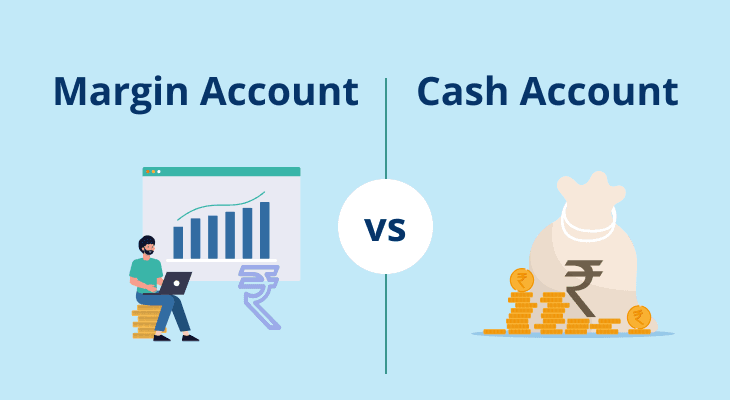
What is Power of Attorney (PoA) in Demat Accounts?
When you open a demat account to invest in shares and other securities, you may come across a document called the Power of Attorney (PoA). This document is often presented to you by your stockbroker or Depository Participant (DP) during the account opening process. While it may appear as just another formality, the PoA plays a critical role in the efficient management and execution of transactions in your demat account.
This article explains the concept of PoA in demat accounts in detail. It will help you understand what a Power of Attorney is, why brokers seek it, the scope it covers, and whether you should sign it. You will also learn about the risks involved, your rights as an investor, and the changes introduced by regulatory authorities to ensure safety and transparency.
What is Power of Attorney (POA) in a Demat Account?
A Power of Attorney (PoA) in a demat account is a legal document through which you, as the account holder, authorise your stockbroker or Depository Participant (DP) to carry out certain activities on your behalf. This includes actions such as selling shares, transferring securities, debiting your demat account, and settling trades.
You do not transfer ownership of your demat account by signing a PoA. Rather, you are granting specific powers to your broker to act in accordance with the terms agreed upon in the document. These powers are limited to facilitating demat-related transactions as per your instructions.
In most cases, the PoA is optional and not mandatory to open a demat account. However, stockbrokers often recommend it to ensure smoother operations, particularly for online trading. Without a PoA, you may need to authorise each transaction manually, which can delay order execution and result in missed opportunities.
Key activities typically covered under a PoA include:
- Debiting securities from your demat account to settle trades
- Pledging shares for margin purposes
- Collecting dividends, bonuses, or rights issues on your behalf
- Performing off-market transfers as instructed
By granting a PoA, you allow your broker to handle these activities without needing your separate approval every time. However, it is important to understand the extent of the authority you are giving and ensure it aligns with your comfort level and trading habits.
Types and Scope of POA in Demat Accounts
In India, PoAs related to demat accounts are generally categorised based on the extent of authority you grant. Understanding these types will help you choose the one that suits your investment approach.
1. General PoA
A general PoA allows your stockbroker or DP to undertake a wide range of actions concerning your demat and trading account. It may include:
- Buying and selling securities
- Transferring shares from your demat account
- Applying for IPOs and other offers
- Pledging or unpledging securities
- Collecting dividends, interest, or refunds
Since this type of PoA gives extensive control, it must be read carefully before signing. Ensure that the terms match only what you intend to permit.
2. Limited/Specific PoA
A limited PoA restricts the broker’s powers to specific actions only. Most investors prefer this type of authorisation because it offers better control. For example, a limited PoA may allow the broker to debit shares from your demat account only to settle a trade executed on your instructions.
This type is increasingly popular following regulatory guidelines that discourage blanket authorisations.
3. e-PoA (Electronic PoA)
With the digitisation of financial services, many brokers now offer an Electronic Power of Attorney (e-PoA). This version can be signed digitally using Aadhaar-based authentication or other secure e-signature platforms.
The e-PoA is valid under Indian law, provided it meets the required standards of consent and verification. It reduces the paperwork burden and speeds up the account activation and transaction processes.
Benefits of Granting POA
Here are some key benefits:
Faster Trade Settlement
With a signed PoA, your broker can automatically debit the required securities from your demat account as soon as a sell order is placed. This helps in faster settlement, especially for same-day trades. Without a PoA, you would need to manually authorise each transaction, leading to delays.
Seamless Online Trading Experience
If you trade through an online platform or mobile app, having a PoA allows the system to function smoothly without interruptions. It ensures real-time settlement and reduces the need for physical or digital authorisations for each transaction.
Convenient Pledging of Securities
When you want to pledge your shares for margin funding or trading limits, a PoA simplifies the process. Brokers can initiate pledging or unpledging directly without needing a separate approval each time.
Efficient Corporate Action Handling
Some PoAs also authorise brokers to collect dividends, bonuses, or interest payments on your behalf. This ensures that you receive all entitlements on time, even if you are not actively monitoring your investments.
Useful for NRIs and Busy Investors
For non-resident Indians (NRIs) or individuals with limited time, granting a PoA helps in managing demat accounts without constant follow-ups. The broker can execute necessary actions as per market conditions.
Also Read: https://www.mstock.com/articles/demat-account-for-nri
Reduced Operational Burden
Once the PoA is in place, you do not need to upload Delivery Instruction Slips (DIS) or manually sign trade confirmations for each transaction. This reduces paperwork and improves efficiency.
Risks, Rights, and Recent Regulatory Changes
While the Power of Attorney offers convenience, it is essential to understand the potential risks and your rights as an account holder. You must also be aware of recent regulatory updates that protect investors from misuse of PoA.
Risks Associated with PoA in Demat Accounts
- Misuse of Authority: If a broker has broad powers under the PoA, there is a chance of misuse or unauthorised transactions. Although such incidents are rare with reputed brokers, they cannot be entirely ruled out.
- Financial Losses: Improper use of PoA may lead to losses, especially if shares are sold or transferred without your consent. This may happen in poorly drafted or ambiguous PoAs.
- Unclear Terms and Conditions: In many cases, PoA forms for demat accounts are lengthy and contain legal jargon. If you sign without reading or understanding, you may inadvertently give away more control than you intended.
- Difficulty in Revocation: Although a PoA can be revoked, the process may involve sending written instructions, and in some cases, notarisation. During this time, the broker may continue acting as per the existing authority.
Your Rights as an Investor
As a demat account holder, you have the following rights concerning PoA:
- The right not to sign a PoA. It is optional and cannot be made mandatory for account opening.
- The right to choose between general or limited PoA, or to opt for e-POA.
- The right to revoke the PoA at any time through a written notice to your broker.
- The right to receive transaction alerts and statements from the depository to monitor all activities.
- The right to report unauthorised activities to SEBI or the respective exchange for redressal.
SEBI’s Regulations and Safeguards
The Securities and Exchange Board of India (SEBI) has introduced several measures to protect investors from PoA misuse:
- PoA is no longer mandatory for opening a demat or trading account.
- SEBI has mandated brokers to obtain explicit consent from clients before acting under PoA.
- Only specific actions such as transfer of securities for trade settlement are allowed.
- The Securities and Funds settlement must be routed via clearing corporations, reducing reliance on broker-operated PoAs.
- Investors are now encouraged to use TPIN (Transaction Personal Identification Number) based validation as an alternative to PoA for delivery-based trades.
These regulations provide protection against potential misuse and ensure that the power granted is not absolute or exploited.
Points to Consider Before Signing a PoA Form
Before signing a PoA form for demat account, here are a few things you should review carefully:
- Check whether the PoA is general or limited in scope.
- Understand each clause and what authority it grants the broker.
- Ask your broker to explain any section that seems unclear.
- Ensure that the PoA mentions only demat and trading-related actions. It should not authorise unrelated activities.
- Retain a copy of the signed PoA for your records.
- Monitor your account statements regularly for any unauthorised transactions.
Taking these precautions will help you make the most of the convenience offered by PoA while staying protected.
Conclusion
The Power of Attorney in a demat account is a practical tool that makes securities trading and investment management more efficient. It allows your broker to carry out authorised actions on your behalf, helping in quick settlements and seamless operations. However, granting PoA also comes with certain responsibilities. You must read the document carefully, understand its scope, and stay vigilant about how it is used.
With evolving regulations, you now have more control and protection when it comes to using PoA. You are not obliged to sign it, and you can explore alternatives like TPIN based authentication if you prefer manual control over your transactions.
The decision to sign a PoA depends on your trading frequency, investment style, and level of comfort with granting third-party access. If used wisely and with awareness, it can be a useful tool for managing your demat account efficiently.
FAQ
Is signing a Power of Attorney mandatory to open a demat account?
No, it is not mandatory. You can open and operate a demat account without signing a PoA.
Can I trade without giving PoA to my broker?
Yes, you can. Many brokers offer TPIN-based systems or electronic consent methods that allow you to trade without signing a PoA.
What is the difference between general and limited PoA in demat accounts?
A general PoA grants broad authority, while a limited PoA restricts actions to specific purposes like trade settlement.
How can I revoke a PoA once signed?
You must submit a written revocation letter to your broker and ensure it is acknowledged. Keep a copy of the letter for your records.
Can a PoA be executed electronically?
Yes, an e-PoA is valid if executed through recognised digital signature platforms and meets the verification requirements.
Will my broker be able to misuse my PoA?
While most brokers follow ethical practices, misuse is possible if the PoA grants broad powers. Choose limited PoA and monitor your account regularly.
How do I check if PoA is active on my demat account?
You can check the status by logging into your broker’s platform or by contacting their customer support team.
Can I sign a PoA for joint demat accounts?
Yes, but all joint holders must authorise it. The PoA must be signed by all account holders.
Are there any charges for using PoA services?
Generally, there are no extra charges for using PoA, but brokers may have internal policies. It’s best to confirm during account setup.
What should I do if I suspect unauthorised use of my PoA?
Immediately contact your broker, freeze your account if necessary, and inform the depository and SEBI for further action.


